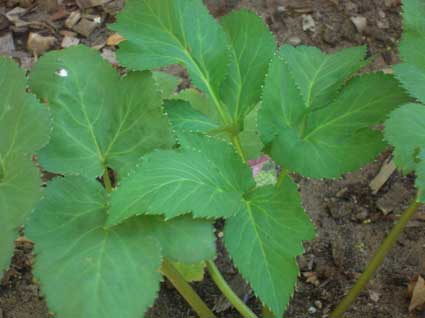
Angelica / Angelica archangelica

Umbelliferae/Apiaceae
Angelica
archangelica
Archangel, Masterwort
Antispasmodic; Carminative; Diaphoretic; Diuretic; Expectorant; Stimulant; Stomachic; Tonic.
Root, stalk, seed, leaves
The chief constituents of Angelica are about 1 per cent. of volatile oil, valeric acid, angelic acid, sugar, a bitter principle and a peculiar resin called Angelicin, which is stimulating to the lungs and to the skin. The essential oil of the roots contains terebangelene and other terpenes; the oil of the 'seeds' contains in addition methyl-ethylacetic acid and hydroxymyristic acid. Angelica balsam is obtained by extracting the roots with alcohol, evaporating and extracting the residue with ether. Contains Psoralen which is a MAO - A inhibitor
Angelica has a long folk-history of use as a medicinal herb, in particular for the treatment of digestive disorders . The leaves and seeds can also be used. An infusion of the root is used to ease flatulence, indigestion, chronic bronchitis and typhus. It is used to treat coughs and colds and is very beneficial for mucus coilitis and excessKapha( mucus ) in the digestive tract . Angelica is contra-indicated for people with a tendency towards diabetes since its use can increase sugar levels in the urine. This plant should not be prescribed for pregnant women, nor should the juice be allowed to come into contact with the eyes. An essential oil from the seeds is sometimes used as a rub to relieve rheumatic conditions. Essential oil from the roots is used to get rid of fungal and bacterial growths. The root stalks, leaves and fruit possess carminative, stimulant, diaphoretic, stomachic, tonic and expectorant properties, which are strongest in the fruit, though the whole plant has the same virtues. Angelica is a good remedy for pleurisy, wind, colic, rheumatism and diseases of the urinary organs. It is generally used as a stimulating expectorant, combined with other expectorants the action of which is facilitated, and to a large extent diffused, through the whole of the pulmonary region.It is a useful agent for feverish conditions, acting as a diaphoretic.
Used in protection, healing and exorcism incense. Sprinkled in the bath to clear negative energy that may be directed at you. Smoking the leaves is said to cause visions . Sprinkled around the house to clear away negative energy.
NB. contains a compounds which is a MAO - A inhibitor, therefore should not be used by anyone taking SSRI's or antidepressants.
https://www.theherbalist.com.au/herb_gallery/angelica